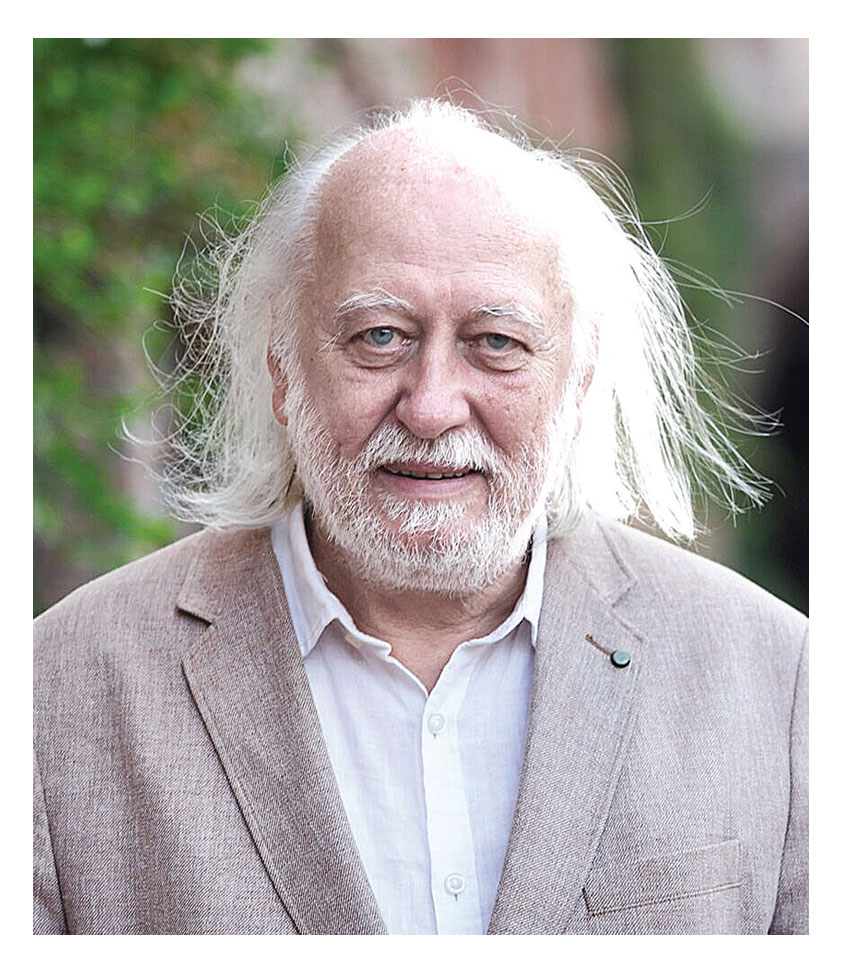
Masum Billah
László Krasznahorkai has been awarded the Nobel Prize in Literature for the year 2025 for his compelling and visionary oeuvre that, in the midst of apocalyptic terror, reaffirms the power of art. He is a Hungarian novelist and screenwriter known for postmodern works that explore absurdist, dystopian themes and employ long, labyrinthine sentences that wind through hundreds of pages. “Krasznahorkai is essentially a great epic writer in the central European tradition that extends through Kafka to Thomas Bernhard, his work being characterized by absurdism and grotesque excess. His narratives frequently explore themes of existential dread. They also delve into societal decay. Krasznahorkai’s oeuvre is rich with themes that resonate with readers across the globe.
71-year-old László Krasznahorkai is the second Hungarian to win this prize, after Imre Kertesz in 2002. Krasznahorkai was born in the small town of Gyula in southeast Hungary, near the Romanian border. As a child, he discovered the works of Franz Kafka, whom he credits for sparking his interest in both writing and law. “I wanted to deal with criminal psychology,” he told The Paris Review.

A student of philology and Hungarian literature, Krasznahorkai has authored nine novels, numerous collections of short fiction and essays, and several screenplays, including co-writing the epic seven-hour film adaptation of his first book Satantango (1985). He is one of the most distinctive, recognizable writers in the world today. Satantango is more than just a story; it is a profound commentary of the human condition. Set in Hungary before the fall of communism, it portrays the disturbing interpersonal and political dynamics in a failing rural community. The narrative unfolds in a series of long, winding sentences that mirror the complexity of life itself. His five books trace his apocalyptic themes, intricate prose, and relentless pursuit of beauty and meaning amid chaos and collapse. His language is the mad scream of a godless universe at our inexcusable squandering of every good thing given to us by chance. The voluble form stirs up the broken content in an irresistible current, flowing from the Big Bang to Paradise – right past our lost world. His prose is difficult to excerpt. The sentences never end, so even a few quoted words inevitably draw one into the vortex of an all-consuming syntactical storm system.
After Sátántangó, he followed up with Az ellenállás melankóliája (The Melancholy of Resistance) in 1989, in which a small Hungarian town collapses into anarchy. The novel’s many grotesque scenes include the arrival of a strange, ghostly circus with a giant whale carcass among its attractions. It was awarded the German Bestenliste Prize for best book of the year. It also led to American writer Susan Sontag anointing Krasznahorkai a “master of the apocalypse.” The novel is about a pair of swindlers and a nearly abandoned collective farm. It portrays, in powerfully suggestive terms, a destitute group of residents in an abandoned collective farm in the Hungarian countryside just before the fall of communism. The book was made into a seven-hour movie in 1994. Krasznahorkai had a close creative partnership with Hungarian filmmaker Bela Tarr, who adapted several of his works into films, including "Satantango" and "The Werckmeister Harmonies."
Speaking to Swedish Radio, Krasznahorkai said he had only planned to write one book, but after reading his debut novel, Satantango, he wanted to improve his writing with another one. “My life is a permanent correction,” he said. The settings of his novels move across central Europe’s remote villages and towns, from Hungary to Germany, before skipping to the Far East, where the deep-seated impressions his travels to China and Japan had made can be seen.
Much of Krasznahorkai’s inspiration comes from experiences in central Europe on the cusp of the fall of communism. In 1987, he moved from communist Hungary to West Berlin, where he said he found “a democratic ambience” he had never experienced before. Krasznahorkai’s writing may resonate with readers immersed in news from Russia’s war in Ukraine, a topic he is vocal about, as well as the Palestinian-Israeli conflict, said Jason Whittaker, Professor of Communications at the University of Lincoln. “We seem to have entered the 21st century in a more hostile and bleaker environment than we hoped for at the end of the 20th,” Whittaker said. “So, actually…some of the bleak and darkly comic elements of books such as Satantango actually will resonate with many more readers than previously.”
Zsuzsanna Varga, a Hungarian literature expert at the University of Glasgow, said Krasznahorkai’s novels probe the ‘utter hopelessness’ of human existence, while also being ‘incredibly funny.’ Krasznahorkai himself expresses his reaction through this statement “I am deeply glad that I have received the Nobel Prize — above all because this award proves that literature exists in itself, beyond various non-literary expectations, and that it is still being read."
_________________________________________
The writer is President, English Teachers’ Association of Bangladesh (ETAB)

